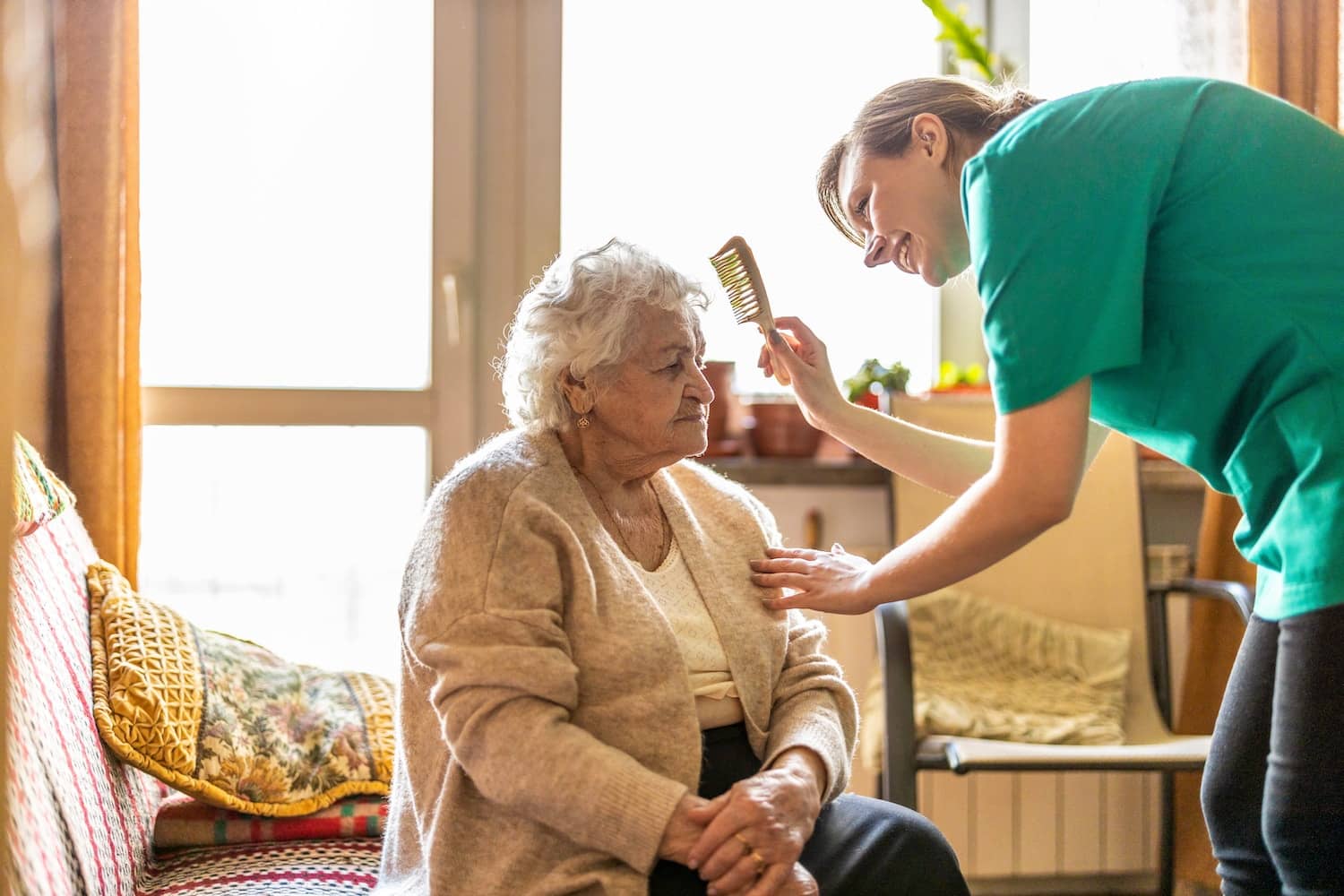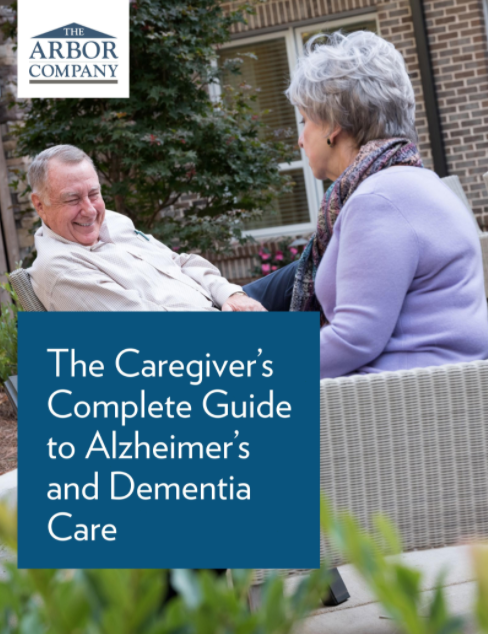
Recognizing Mental Deterioration Care: A Guide for Loved Ones
The intricacies of dementia care call for a nuanced understanding that extends beyond fundamental understanding of the problem itself. As we explore these important elements, it becomes noticeable that the journey of recognizing dementia care is not simply regarding the private influenced, however likewise regarding the elaborate dynamics that form their relationships and experiences.
What Is Dementia?
Mental deterioration is a collective term that incorporates a variety of cognitive impairments characterized by a decline in memory, thinking, and social capacities severe sufficient to hinder life. It is not a specific condition yet rather an umbrella term that includes different kinds of cognitive problems, with Alzheimer's disease being one of the most prevalent. Other kinds include vascular dementia, Lewy body mental deterioration, and frontotemporal dementia, each with distinct qualities and underlying causes.
The beginning of dementia generally includes steady cognitive decline, affecting the person's ability to perform daily jobs and engage meaningfully with others. These problems can show up as problems with interaction, analytical, and judgment. As dementia progresses, individuals may experience changes in mood and actions, which can additionally complicate their care and social interactions.
Comprehending dementia is vital for households, caretakers, and medical care specialists to give ideal assistance and treatments. Early medical diagnosis and intervention can help handle signs and improve the lifestyle for those impacted. Additionally, it fosters a much deeper understanding of the obstacles encountered by people with mental deterioration, highlighting the value of caring care and assistance throughout their journey.
Acknowledging the Symptoms
Identifying the signs of dementia very early is vital for reliable intervention and assistance - memory care charlotte. Mental deterioration includes a variety of cognitive problems that can show up in numerous ways, commonly hindering daily functioning and lifestyle. Common very early symptoms include amnesia, particularly neglecting recent events or conversations, which might originally be dismissed as typical aging
As the condition progresses, people might exhibit difficulties with analytical, preparation, or finishing familiar tasks, such as handling funds or adhering to a recipe. Confusion concerning time or place typically occurs, resulting in disorientation and anxiousness. Changes in state of mind and actions are likewise substantial indications; people might come to be taken out, irritable, or show passiveness in the direction of tasks as soon as taken pleasure in.
Additionally, challenges in language can appear, materializing as trouble in locating the appropriate words or following conversations. Identifying these signs early can facilitate prompt clinical evaluation and treatment preparation. It is important to approach these monitorings with sensitivity and understanding, as they can be stressful for both the specific and their enjoyed ones. Motivate focus to these indicators can result in better outcomes and support for those influenced by mental deterioration.
Reliable Communication Strategies

Non-verbal cues play a crucial function in communication. Keeping eye call, making use of proper faces, and using motions can aid communicate your message better. Furthermore, creating a distraction-free environment can additionally facilitate significant communications.
Energetic listening is essential; give the person sufficient time to react without disrupting. Confirm their sensations and experiences, which cultivates trust and motivates open dialogue. When going over acquainted subjects or memories, use motivates to guide the conversation, assisting them feel engaged and valued.
Lastly, be prepared to adapt your strategy based on the person's existing cognitive state. Adaptability in interaction techniques guarantees that you stay connected, enhancing the value of your connection. By applying these methods, you can produce an encouraging ambience that motivates positive communications with individuals impacted by dementia.
Developing a Helpful Setting
Producing a supportive atmosphere is important for boosting the top quality of life for individuals with mental deterioration. This environment ought to focus on safety and security, familiarity, and convenience to lower anxiousness and confusion. Begin by lessening prospective threats; eliminate tripping obstacles, protected carpets, and make certain that lights is adequate. Plainly mark rooms and areas with indicators or signs to assist navigating.
Including regimens can offer a feeling of security. Predictable timetables aid individuals with dementia recognize what to anticipate throughout the day, thus reducing sensations of disorientation. Customizing the living room with familiar things, photographs, and tokens can evoke favorable memories and develop a sense of belonging.
Furthermore, consider the sensory elements of the environment. Soft shades, calming scents, and mild noises can add to a relaxed atmosphere. Equilibrium stimulation to prevent frustrating the individual; silent locations for relaxation need to match extra active areas for social communication.
Self-Care for Caregivers
Sustaining people with dementia calls for not only a well-structured atmosphere yet likewise attention to the wellness of caretakers. Caregivers often deal with psychological, physical, and psychological obstacles that can bring about exhaustion if not correctly resolved. Focusing on self-care is vital to keep their health and wellness and efficiency in giving treatment.
First, caregivers ought to establish a regular routine that includes time for personal tasks and relaxation. Taking part in leisure activities, workout, or merely walking can considerably relieve stress. It is vital to preserve a balanced diet plan and ensure adequate rest to boost physical durability.
Furthermore, caretakers need to seek social assistance. This can be achieved by joining support teams, involving with close friends, or talking to relative about their feelings and web experiences. Such links assist caretakers feel less separated and provide valuable emotional electrical outlets.
Finally, caretakers should not hesitate to seek specialist aid when required. Consulting psychological health and wellness specialists can aid in creating coping strategies and provide tools for handling the psychological toll of caregiving. view it now By actively practicing self-care, caretakers can boost their health, eventually profiting both themselves and the individuals they care for.
Final Thought
In conclusion, understanding mental deterioration treatment is critical for enhancing the top quality of life for individuals affected by this problem. Furthermore, focusing on self-care for caretakers guarantees their well-being, ultimately benefiting both caretakers and those obtaining care.
As we explore these essential elements, it becomes obvious that the journey of comprehending dementia treatment is not just regarding the individual influenced, however likewise concerning the elaborate characteristics that form their experiences and connections. Various other forms consist of vascular dementia, Lewy body mental deterioration, and frontotemporal mental deterioration, each with distinctive features and underlying reasons.
As mental deterioration progresses, people may experience changes in mood and actions, which can better complicate their care and social communications.
Additionally, it cultivates a deeper understanding of the difficulties dealt with by people with mental deterioration, highlighting the importance of compassionate treatment and support throughout their trip.
In verdict, understanding dementia care is find out essential for improving the high quality of life for individuals impacted by this problem. (memory care facility charlotte)